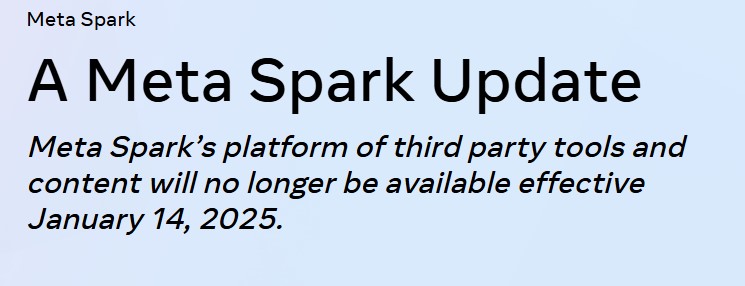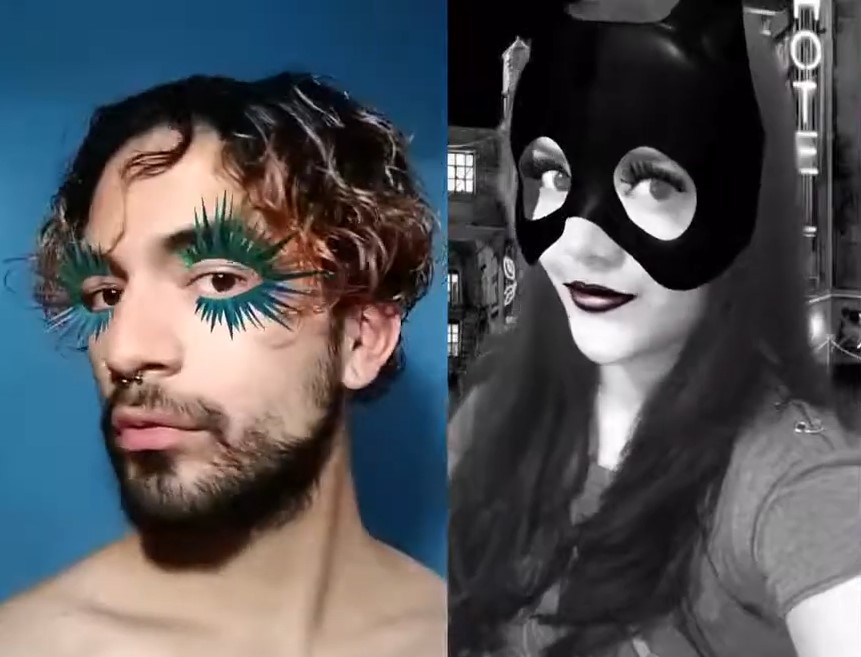
Meta has officially announced that starting January 14, 2025, third-party augmented reality (AR) filters will no longer be available across its platforms, including Instagram and Facebook.
The decision marks the end of an era for AR filters that allowed users to enhance their photos, alter their appearances, and add creative flair to their content.

Meta cites a focus on user well-being and a shift toward new company priorities, including artificial intelligence (AI) advancements, as the driving factors behind this move.
While Meta’s own filters will remain available, the removal of third-party options has sparked debates about the future of creativity and expression on its platforms.
Millions of Filters Disappear Across Platforms

Meta will remove over two million third-party filters from Instagram, Facebook, and Messenger. Created by users and brands, filters have been a popular way to add creativity, fun, and unique effects to photos and videos.
For years, filters helped people customize their content and share memorable moments. The decision to eliminate them leaves many wondering how this change will affect their experience and the creative community that grew around it.
Why Meta Made This Decision
Meta explained that the removal of third-party filters is part of a plan to address mental health concerns and shift resources toward other priorities.
Research has shown that many beautifying filters contribute to negative body image, particularly among young women. By removing these tools, Meta aims to reduce the harmful effects they can have on users.
The company has also invested heavily in artificial intelligence, allocating billions of dollars to develop new technologies.
Shifting focus to AI seems to be another reason behind the decision, as Meta works to integrate more advanced features into its platforms.
While some applaud the effort to address mental health, others see it as a way for Meta to cut costs and centralize control over filters.
How Creators and Users Will Be Affected?
The removal of third-party filters will impact creators and users in significant ways. Many creators relied on filters to build their brand, engage audiences, and reach new followers. Without access to these tools, some may struggle to maintain the same level of creativity and interaction on Meta’s platforms.
Meta is shutting down “Spark AR” (the platform used to create Instagram/Facebook Filters) next week. They are taking down all AR effects created by third party creators…
Remembering the moments that some TWICE members used my created Instagram Filters for them. 🥹💞
Thank you… pic.twitter.com/g6xctx0bA5
— gio (@NayeonNabong) January 5, 2025
For everyday users, filters were a way to add personality and fun to photos and videos. Losing them means fewer options for self-expression and customization. Many are now considering alternative platforms like Snapchat and TikTok, which continue to offer a wide variety of AR effects and creative tools. The change may shift how users engage with social media altogether.
First-Party Filters Will Remain Available
Although third-party filters are being removed, Meta will continue to offer its own collection of first-party filters across Instagram, Facebook, and Messenger.
These include basic effects for enhancing photos and adding creative touches to content.
The current selection of first-party filters is much smaller compared to the millions of third-party options being removed.
Many users have noted that Meta’s filters lack the variety and sophistication often seen in those made by creators.
As a result, some worry that the available options may not meet the diverse needs and preferences of the platform’s global audience.
Read Next – Online Truth or Dare Questions for Couples.
















